New Defense Minister Belousov to put Russia's economy on war footing
- Oops!Something went wrong.Please try again later.
- Oops!Something went wrong.Please try again later.
- Oops!Something went wrong.Please try again later.
Russian President Vladimir Putin's appointment of a new defense minister, Andrey Belousov, is seen as an attempt to streamline Russia's economy and mobilize it for the war effort.
Russia's military has faced numerous supply and logistics problems that thwarted its all-out war against Ukraine from the get-go. Two years later, the problems of poor logistics and lack of strategic planning persist.
The apparent task of Belousov, an outsider with no links to the military, is to solve these problems and make Russia's war machine in Ukraine more effective, a dangerous new development.
Read also: Russian banks post record profits. Is war helping them?
Belousov, who has regularly called for increasing military spending and government interference in the economy, is seen as a man able to put Russia's whole economy on a war footing.
Russian columnist Sergei Parkhomenko called Belousov the "prime minister of a military government."
"He is supposed to use the whole economy for military purposes," Parkhomenko told the Kyiv Independent. "He will make sure that everything works for the needs of the war and Russia's aggression."
Belousov's appointment with a mandate to restructure the country's military economy also implies that Putin is aiming for a long, protracted war against Ukraine, analysts say.
Meanwhile, the dismissal of Belousov's predecessor Sergei Shoigu and Nikolai Patrushev, the secretary of Russia's Security Council, may be Putin's delayed response to the failures of the military and security services during the full-scale invasion of Ukraine.
The exit of these officials is also seen by some analysts as an effort by Putin to sideline two heavyweights who have become too powerful in a country ruled by one person.
A statist approach
Belousov was Russia's economy minister from 2012 to 2013 and an aide to Putin from 2013 to 2020. He then served as the first deputy prime minister until May 2024, largely unknown to the general public.
Several high-profile Russian pro-war Telegram channels have come out with posts asking "who is Belousov?"
Belousov, who is largely absent from state TV, has consistently called for increasing government spending and imposing windfall taxes on Russia's commodity exporters.
Belousov has become somewhat famous for his rare but flamboyant anti-business statements.
In 2019, he proposed imposing a cumulative 500 billion ruble ($5.5 billion) windfall tax on the steel, chemical, and petrochemical industries in a letter to Putin. When businesses leaked the information to the media, he called them "fools" and "idiots."
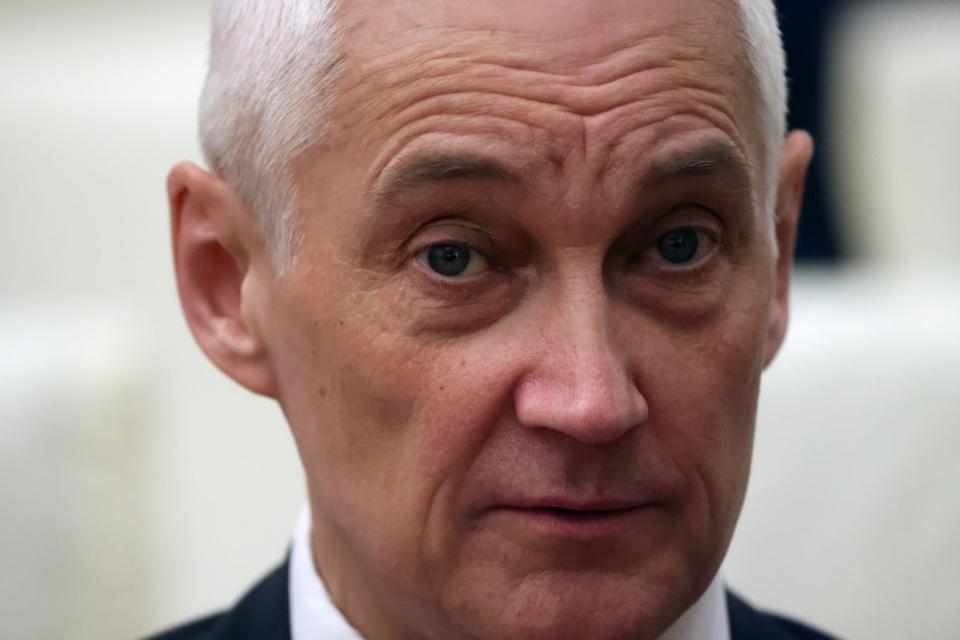
Some Russian political analysts, including Georgy Satarov and Abbas Gallyamov, speculated that Belousov's statist and interventionist approach could ruin Russia's economy in the long run.
Another political analyst based in Russia told the Kyiv Independent that this is unlikely because Belousov will not have the tools to restructure the economy in general since he is not an economy minister or central bank chief. The analyst spoke on condition of anonymity due to fear of reprisals.
He said that Belousov's controversial statements are not an indicator of his competence.
"It's useless to hope that the Russian authorities will ruin (the economy), and everything will collapse," he said. "Instead, Ukraine should win the war on the battlefield."
Mobilizing the economy for war
Putin's spokesman, Dmitry Peskov, said on May 12 that Belousov's task is "to integrate the military-industrial complex into the country's economy."
"Belousov has developed a strategy for mobilizing the economy (for the war effort)," Gallyamov told the Breakfast Show on May 13. "He was the brain of a hawkish group (at the Kremlin). He believes that, since they started a war, they must wage it in a serious way."
Belousov believes in the war economy, Gallyamov added.
Journalist Sergei Medvedev, who has been acquainted with Belousov since 1993, compared him to Albert Speer, Nazi Germany's minister of armaments and war production in 1942-1945.
"Putin's Reich has its own Speer now... he has always been a convinced statist, a supporter of interventionism, an exemplary technocrat, and servant of the state," Medvedev wrote on Facebook on May 13.
Belousov's appointment implies that the Kremlin sees the war against Ukraine as a long-term commitment and wants Belousov to restructure the military and the defense industry in the long term, analysts say.
Read also: Russia’s descent into totalitarianism: How it happened
"We can also conclude that the war is seen (by the Kremlin) as a long-term affair," Russian political analyst Ekaterina Shulman said on May 13.
Parkhomenko echoes this sentiment.
"For Putin, war is his lifestyle," he said. "It's his method of running Russia and his only opportunity to keep his job."
Meanwhile, the Institute for the Study of War said on May 12 that Belousov's appointment "is a significant development in Putin's efforts to set full economic conditions for a protracted war."
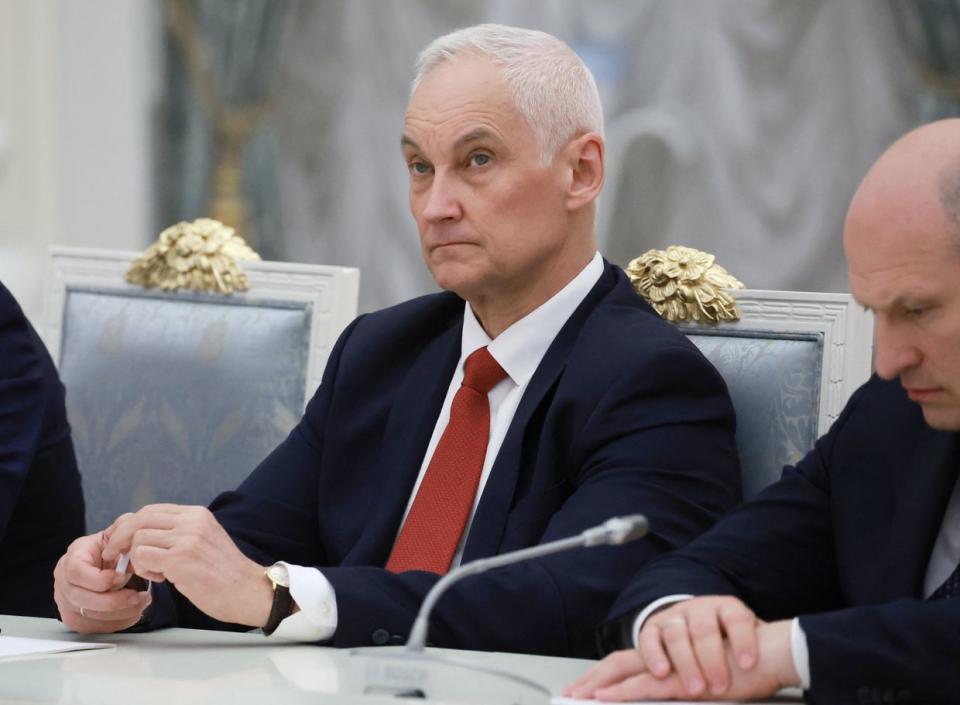
Gallyamov also believes that Putin "bets on a long-running war for years" and "gradually more and more resources will be mobilized for the front."
The Kremlin also expects Belousov to increase efficiency and reduce corruption in the military, Shulman said.
He is expected to create an army that will not suffer from supply problems, according to Shulman.
Some sources claim that Belousov will be more effective than Shoigu because he is not corrupt.
Russian independent journalists disagreed with this assessment.
Russian publication Metla reported in 2020 that Belousov's consulting firm Claire & Clarté had obtained lucrative contracts with state agencies. In 2023, Claire & Clarté received a record 593 million rubles ($6.5 million) in revenue, according to the Russian independent publication IStories.
"One corrupt official has resigned, another corrupt official has been appointed," Russian investigative journalist Sergei Yezhov wrote on X on May 12, commenting on Belousov replacing Shoigu.
Read also: Xi claims Beijing, Moscow want ‘political solution’ to Russia-Ukraine war
Shoigu's failures
Putin's decision to replace Shoigu with Belousov could be his delayed reaction to Shoigu's failures during the full-scale invasion of Ukraine, analysts say.
Shoigu has faced criticism from Russia's pro-war hawks, including warlord and convicted war criminal Igor Girkin and the late mercenary leader Yevgeny Prigozhin, for mishandling the war effort in Ukraine.
Specifically, Shoigu came under fire for Russia's failure to capture Kyiv at the beginning of the invasion and Russia's withdrawal from Kyiv, Sumy, and Chernihiv oblasts in April 2022.
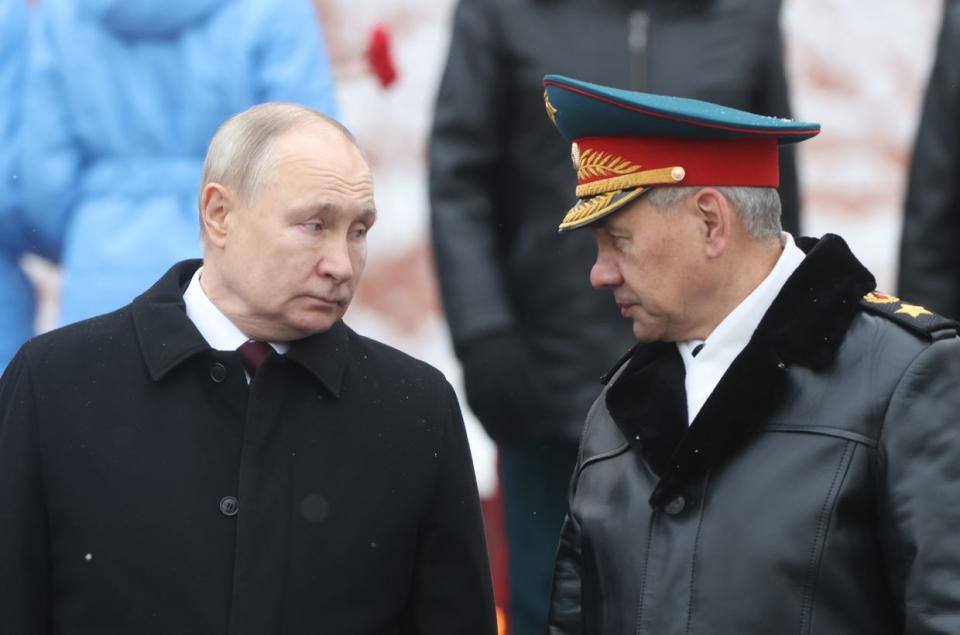
Subsequently, Shoigu was lambasted for Russia's failure to stop a Ukrainian advance in Kharkiv and Kherson oblasts in September-November 2022.
Both Russian independent investigative journalists and pro-war bloggers exposed large-scale corruption at the Defense Ministry during Shoigu's tenure.
Two of Shoigu's top subordinates were recently targeted in corruption investigations.
In April, Shoigu's deputy, Timur Ivanov, was arrested in a bribery case.
On May 14, Yury Kuznetsov, head of the Defense Ministry's human resources department, was also arrested on charges of receiving a bribe.
Security council job
After being fired as defense minister, Shoigu was appointed secretary of Russia's Security Council, replacing Nikolai Patrushev.
Since the position is seen as important, some speculated that it may actually be a promotion, not a demotion.
However, analysts say that the job of the Security Council's secretary only becomes important when a political heavyweight occupies it and shapes it to fit his own interests.
Parkhomenko sees Shoigu's new appointment as a demotion. He believes the job was important due to Patrushev's political weight, but under Shoigu, it will be much less important.
"In Russia, there are no powerful jobs; there are only powerful people," he said.
Shulman agreed, saying that "the security council's influence depends on the person who heads it."
She said that the Security Council was initially insignificant but became very powerful when Patrushev became its secretary.
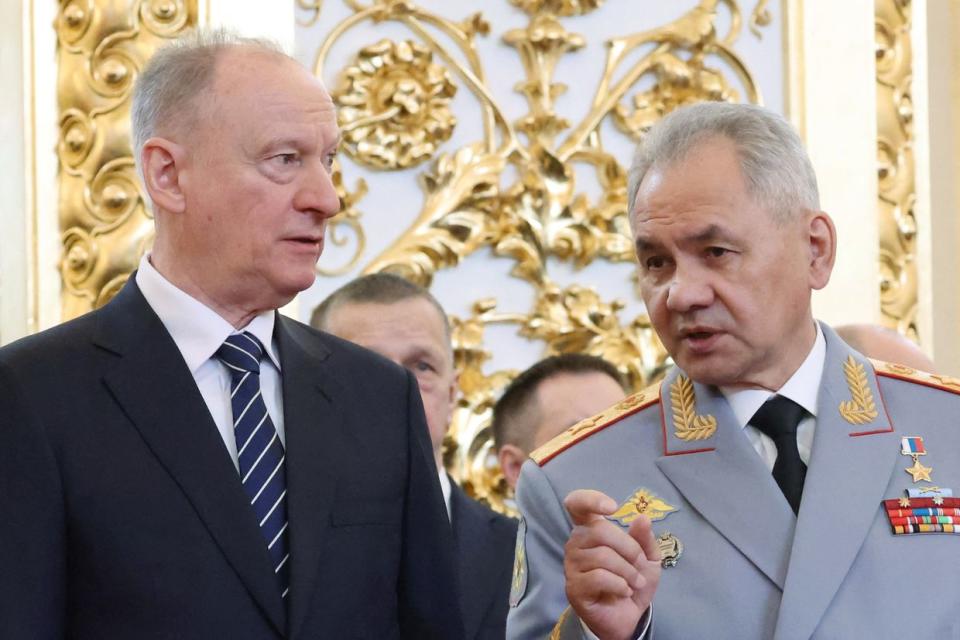
"Under Patrushev, the council became a shadow government that developed Russia's ideology," she said.
Patrushev accumulated immense power, serving as head of the Federal Security Service (FSB) from 1999 to 2008 and as secretary of the Security Council since 2008. Some analysts considered him to be Russia's second most powerful man after Putin.
Patrushev's ousting may have been caused by his increased power.
"This fits the logic of preserving power under authoritarianism: none of the political groups should become too strong," Shulman said. "The balance (of power between political groups) should be always maintained."
Russian political analyst Satarov agreed with this assessment.
"Patrushev has held this job for a long time," he told the Kyiv Independent. "Patrushev has built his own power vertical, which became dangerous."
Satarov also believes that Putin might have feared both Shoigu and Patrushev as potential threats.
"There are two sources of danger - the army and intelligence services," he said. "Putin minimized both of these dangers."
Satarov added that Belousov does not represent such a threat because he is not linked to the Defense Ministry and the military clans established under Shoigu.
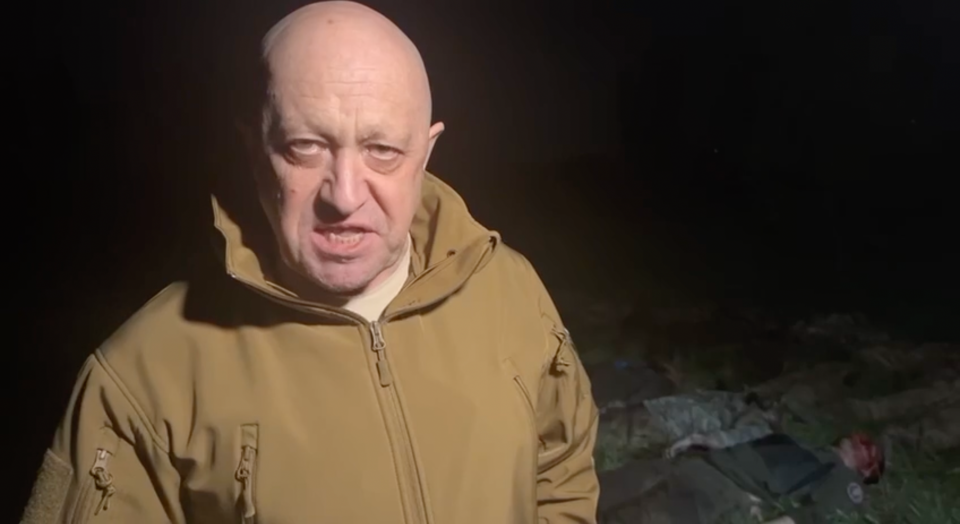
The demotion of both Shoigu and Patrushev may also be linked to their failure to handle a conflict with Prigozhin and his Wagner mercenary group.
Prigozhin launched a rebellion in June 2023 following a long-running conflict with Shoigu.
Wagner troops marched towards Moscow, meeting virtually no resistance and killing at least 13 Russian soldiers. Short of reaching Moscow, Prigozhin concluded a deal with Putin and halted the mutiny.
In August, Prigozhin and other Wagner leaders were killed in a plane crash.
Gallyamov argued that Prigozhin's mutiny was an "epic fail" for Patrushev, who had failed to prevent and suppress it.
The security services, which are overseen by Patrushev, were also lambasted for their incorrect intelligence that led to the failure of Russia's plan to defeat Ukraine quickly and take over Kyiv at the beginning of the invasion.
Read also: Zelensky in Kharkiv: Situation ‘difficult’ but ‘under control,’ Russia suffers losses
We’ve been working hard to bring you independent, locally-sourced news from Ukraine. Consider supporting the Kyiv Independent.

